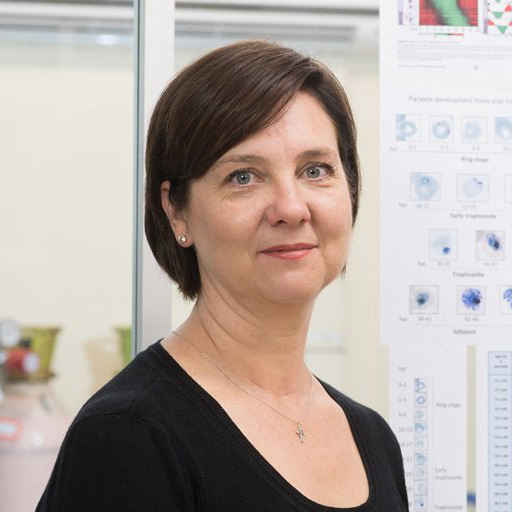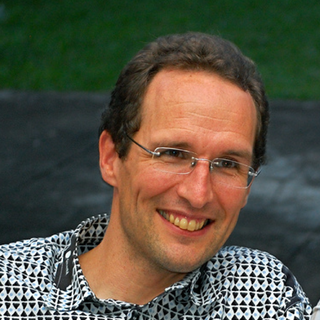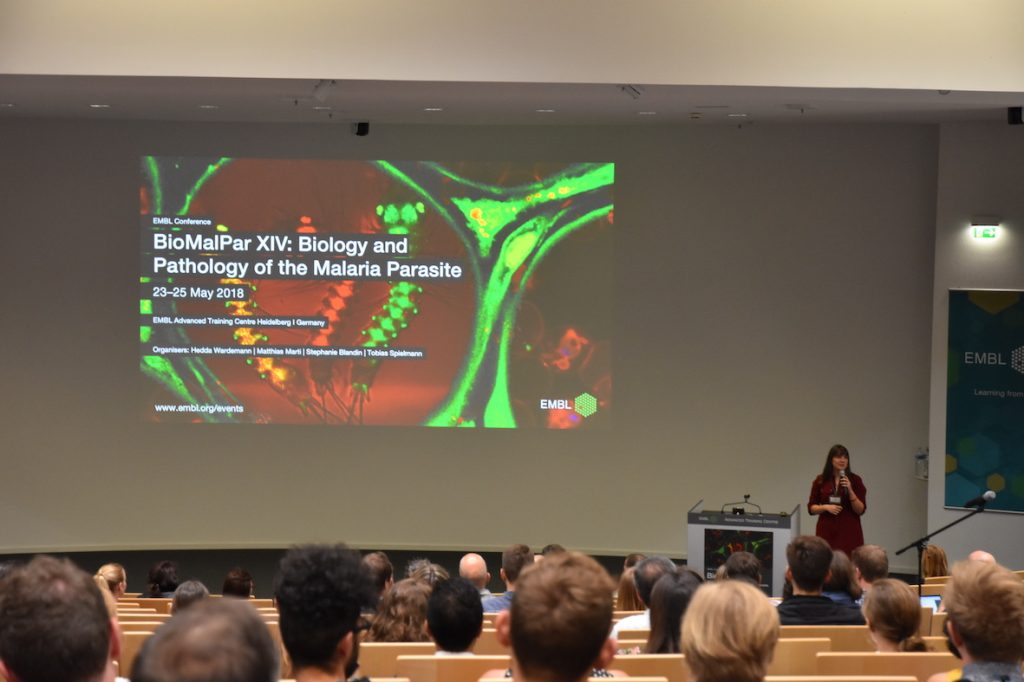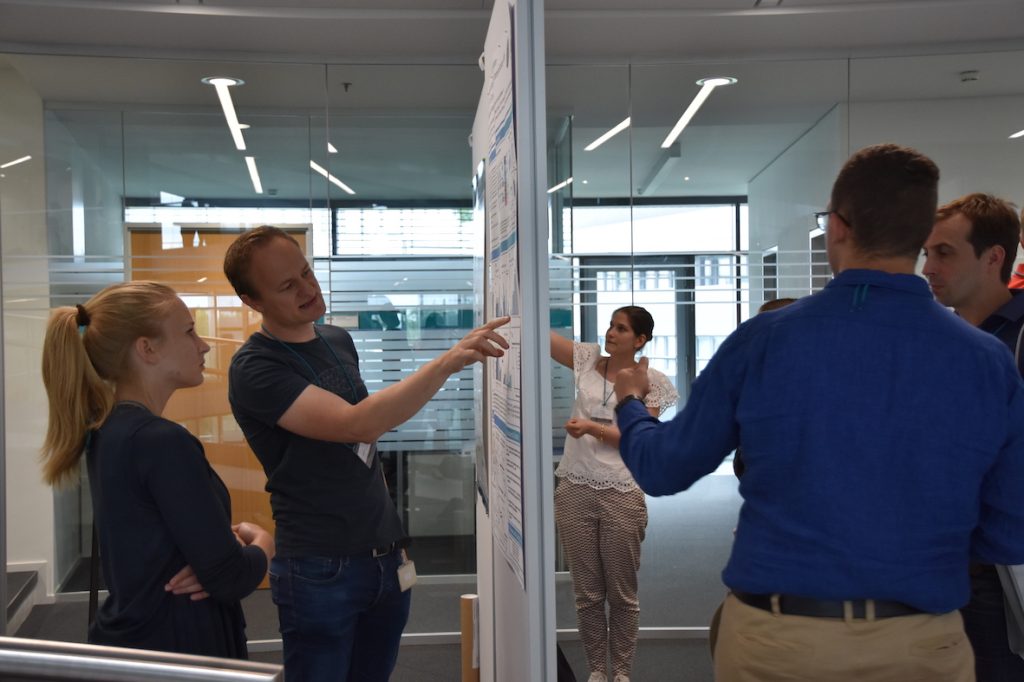Celebrating 15 years of BioMalPar
In honour of World Malaria Day and ahead of the 15th annual EMBL conference on the Biology and Pathology of the Malaria Parasite (BioMalPar), we spoke to the conference organisers Richárd Bártfai, Kirk Deitsch and Lyn-Marie Birkholtz, as well as Andy Waters from the BioMalPar steering committee – which is responsible for selecting the scientific organisers each year – to find out where the field is heading.
Richárd Bártfai, Lyn-Marie Birkholtz, Kirk Deitsch and Andy Waters




The BioMalPar conference is celebrating its 15th anniversary this year. How did it all start and how has it developed over the years?
AW: I was part of the organisation of the original meeting in 2004 and have attended every iteration since. It was originally a dual-purpose meeting designed to bring together the participants in the EC funded Network of Excellence of the same name, “BioMalPar”, the students in the associated PhD school that it funded, and to serve as an international meeting on malaria.
LB: I started attending BioMalPar in 2006 and was inspired by the format of the conference, allowing such great interaction and exposure to young scientists. It always allows the most cutting edge (mostly unpublished) research to be presented, and the addition of workshops to the conference programme allows for additional opportunities for learning, and these workshops are new and trending every year.

What inspired you to organise this conference?
LB: This meeting to me is THE malaria conference that I annually attend. As a researcher from a malaria endemic country, I was inspired to organise the conference to strengthen exposure of the great research performed in such countries at the conference, and provide context for the research findings to show how the excellent research presented have direct impact to people’s lives living with malaria.
RB: This meeting is a prime example of a community effort. Hence organising it is an honour and a great way to serve our community. I very much enjoyed the collegial and welcoming atmosphere created by former organisers and I hope that we will manage to recreate some of it this year as well.
KD: In recent years, the conference has become more widely attended by non-European scientists and is now an event attended by investigators from throughout the world. When I was invited to participate in the organisation of this year’s meeting, I considered it an exceptional opportunity to interact with international colleagues and build stronger ties for exchanging ideas and potential collaborations.
The format of the conference is a bit distinct from that of other meetings in that the majority of talks are reserved for selected short talks. What is the benefit for the programme to have mostly selected talks?
KD: Reserving the majority of each session for short talks ensures that the latest, unpublished data will be presented at the meeting. Highlighting young investigators presenting new data for the first time also lends an air of excitement to the sessions that adds to the overall “buzz” of the conference.
LB: This is in my opinion one of the main strengths of the conference. The audience will have the ability to hear new data ‘straight from the horses mouth’ as the short talks are mostly presented by early career scientists and mostly covers unpublished work.
AW: The emphasis is on packing in as much new science by the early career researchers as possible. This format makes it possible and allows one to work to themes in terms of the meeting organisation
RB: We will have excellent keynote lectures this year to set the stage and provide broad overviews on specific subjects. Yet, selected talks offer opportunity to young research fellows to share their exciting, unpublished findings.

The short talk selection for this year’s edition has now been finalised. Could you share what the focus and highlights of the conference will be?
RB: The content of the short talks is traditionally kept secret till the start of the meeting and I do not want to break this tradition ;-). But we as organisers had a hard time to make a selection out of the numerous excellent abstracts submitted, so I am certain that the scientific standard of the meeting will be very high.
LB: As organisers, we were very happy to have a large basis of excellent abstracts to select from, which will make the final choices exciting to come and listen to!
In your opinion, what challenges is malaria research facing and how close are we to an effective malaria vaccine?
KD: Everyone in the field is thrilled that a malaria vaccine is now being deployed for the first time. However, we also recognise that this vaccine has significant shortcomings in terms of its efficacy and longevity of protection. Research into the nature of the immune response of people infected by malaria parasites, as well as identifying new drugs and drug targets and methods of vector control will all contribute to our ability to control the disease.
LB: With the trial roll out of the RTS,S malaria vaccine in Malawi, we are indeed closer to evaluating the large scale effect of this intervention. However, malaria is a very complicated disease and we should continue with our multifaceted integrative control strategies, which will possibly be the only way we can really have an impact towards elimination. Our research challenges remain to inform policy makers as to the importance of continued funding of the work and for the research community to continue translating these to tangible outcomes, as we have done successfully for the past decade.
RB: Despite substantial progress in the last decades elimination of malaria is still out of our reach. Integration of insight gained in various fields will be essential for generating breakthroughs in drug/vaccine development and vector control alike. The BioMalPar meeting certainly provides an excellent platform for the exchange of innovative ideas and hence will help to bring the well-desired goal of malaria elimination closer to reality.